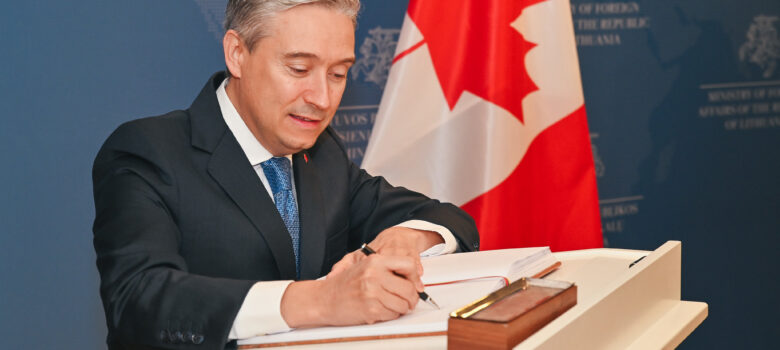More than a year after Bill C-27 was first introduced, the Standing Committee on Industry, Science and Technology finally launched its review of the bill yesterday with an opening appearance from ISED Minister François-Philippe Champagne. The delays in Bill C-27 reflect significant concern with both the effectiveness of the privacy provisions and the inclusion of an AI bill that is widely viewed as inadequate. Champagne started with a 12 minute opening statement in which he assured committee members that he had heard the criticisms and that the government had a wide range of amendments planned to address the concerns. While many of the potential amendments sounded quite positive, once MP questions commenced it became clear that the department had yet to actually draft them and has no plans to provide the actual text until the committee starts clause-by-clause review of the bill. In other words, the government has decided how it wants to change Bill C-27 before a single external witness appears before committee, but it will only release the actual amendments after the witness portion of the committee study is over. The end result is that Champagne broke the hearings before they had really begun, with dozens of witnesses ready to testify about a bill that the government plans to change but won’t provide legislative language.
It should be noted that Champagne did come with some notable proposed changes. On the privacy side, he promised to include language on privacy as a fundamental right, stricter rules on children’s privacy protection, and greater flexibility for the Privacy Commissioner to reach compliance agreements. As for the AI bill, he said he would define the classes of systems that would be treated as “high impact”, create distinct obligations for AI services such as ChatGPT, establish clearer regulatory obligations, provide more data and specifics for the new Data Commissioner, and better ensure that the Canadian system is interoperable with the one found in Europe. While many of these changes are welcome, as always with the legislation, the devil is in the details, which Champagne said he would not provide for weeks.
This secretive, non-transparent approach is unfortunately consistent with the privacy and AI reform process. Indeed, Champagne’s appearance came hours before he is scheduled to reveal another piece in the AI regulatory puzzle with the release of finalized non-binding Generative AI guardrails. This Code of Practice was negotiated in secret over the summer until its existence was inadvertently posted on a government site and I tweeted about it. The government then proceeded to release the draft document, but the consultation meetings on the document – I believe there were four in total – resulted in what is expected to be only minor modifications such as the inclusion of a hierarchy of use cases. In many respects, the document is very similar to a non-binding one released by U.S. President Joe Biden in July. For example, the U.S. has three commitment categories, while Canada has six outcomes, but they cover much the same ground. The Code is most notable for the secretive policy process, missing the big global AI companies as signatories, and for the government’s seeming need to invoke Yoshio Bengio’s stamp of approval as frequently as possible.
Canadians deserve better on such an important piece of legislation. The inclusion of both privacy and AI bills means that the committee has split the hearings as it will start with privacy and then shift after several weeks to AI (there are 13 sessions planned). But witnesses will presumably have to pick their issue and will only get the usual five minute opening statement to effectively discuss two bills. Once they pick, Champagne has now confirmed that they will be working with an outdated version of the bill since there will be an updated version that is revealed after witness testimony concludes. Given yesterday’s presentation, the committee should suspend hearings until the draft amendments are released so that everyone can comment on where the bill is headed, not on a year-old version that was rendered outdated within minutes of Champagne’s committee appearance.












Why should any of this surprise? This government of which one of it’s original campaign promises was transparency, has been anything but transparent.
Just about every bill they propose and pass does so in secrecy, lacking any and all transparency.
Justin Trudeau should be deeply ashamed of how his government creates legislation in this county.
The Liberal government are nothing but puppets to lobby interests across the board.
Pingback: Liberals to add ‘fundamental right to privacy’ to proposed law, but no details yet
Pingback: Liberals so as to add ‘elementary proper to privateness’ to proposed legislation, however no particulars but -
nice
Pingback: Liberals so as to add ‘basic proper to privateness’ to proposed regulation, however no particulars but – freevirtualsolutions.com
Pingback: Les libéraux ajouteront le « droit fondamental à la vie privée » au projet de loi, mais pas encore de détails - Les Actualites
Pingback: Critics call for changes to Canadian privacy, AI laws; government reacts, uae trend,
Pingback: Liberals to add ‘fundamental right to privacy’ to proposed law, but no details yet | IT Business – News Tabe
Pingback: Critics call for changes to Canadian privacy, AI laws; government reacts
Pingback: Canada plans to aid a watch on search and social media relate of AI – CYBE
Pingback: Canada plans to regulate search and social media use of AI - EA KS Blog
Pingback: Canada plans to regulate search and social media use of AI
Pingback: Canada plans to regulate search and social media use of AI – Tech Daily Hub News
Pingback: Tis the Season (for Omnibus Bills) - Summa Strategies
It should be mentioned, come with some noteworthy suggested adjustments. Regarding privacy, he pledged to incorporate wording recognizing privacy as an essential right. | Best factoring companies in Texas
The Code’s policy process is secretive and lacks major global AI companies as signatories. The government also frequently relies on Yoshio Bengio’s endorsement.
https://www.drywallabilene